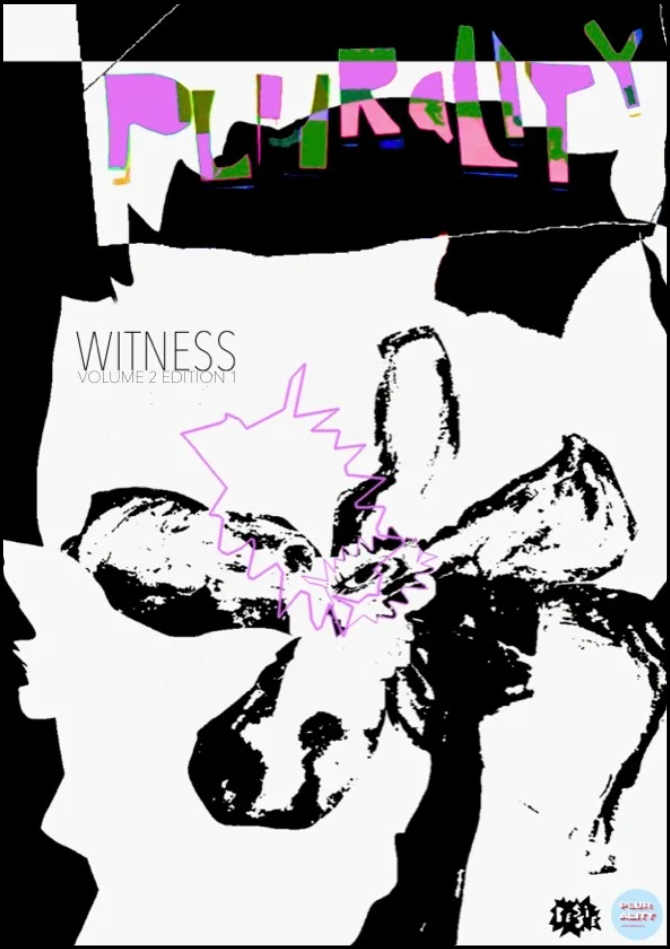The Lost Paradise: The Role of the Witness in Shaping the Historiography of Jerusalem
DOI:
https://doi.org/10.2218/plurality.10619Abstract
Jerusalem is not merely occupied; it is actively rewritten. This piece examines how Palestinian witness testimony defies the gradual violence of erasure, transforming the city from a site of dispossession into an assertion of historical continuity. Drawing from decolonial theory, phenomenology, and political philosophy, I argue that testimony is not merely an act of remembrance but an epistemic and ontological intervention that challenges both material oppression and the state’s monopolization of historical truth. I interrogate the material conditions of occupation, positioning them within a broader philosophy of spatial domination: the destruction of Palestinian homes, the calculated deprivation of infrastructure, and the juridical apparatus that renders Palestinian existence precarious. Drawing on Nur-eldeen Masalha’s concept of memoricide, I examine how settler-colonial power operates not just through territorial expansion but through the systematic erasure and reconstruction of historical narratives, turning Jerusalem into a battleground of meaning as much as land. Testimony emerges here not as passive recollection but as an act of existential resistance. The act of witnessing asserts both the primacy of lived experience and the refusal of epistemic erasure, positioning Palestinian memory as a challenge to the structures that seek to render it illegible. Judith Butler’s work on ‘grievability’ is mobilized to interrogate how international frameworks of recognition operate to exclude Palestinian suffering from the category of the politically visible. Further on, I situates testimony within digital landscapes, analyzing the El-Kurd family’s plight in Sheikh Jarrah as an extension of what James C. Scott terms ‘hidden transcripts,’ a counter-history that bypasses the gatekeepers of official discourse. ‘Digital sumud’ is introduced as a contemporary iteration of Palestinian endurance, where social media functions not just as documentation but as a subversion of hegemonic narratives. Ultimately, this essay argues that Palestinian testimony does more than document loss. It disrupts, resists, and reclaims. The struggle over Jerusalem is not just territorial; it is a war over meaning itself, and through the voices of those who refuse to be erased, the city remains a living archive of defiance.
References
Butler, J. (2016). Frames of War: When Is Life Grievable? Verso. https://ebookcentral.proquest.com/lib/ed/detail.action?docID=5177313
Falk, R. (2023, November 5). Slaughter in Gaza: The Failures of International law and Responsible Statecraft. Global Justice in the 21st Century. https://richardfalk.org/2023/11/05/slaughter-in-gaza-the-failures-of-international-law-and-responsible-statecraft/
Foundation, P. (2020, July 23). In Jerusalem by Mahmoud Darwish. Poetry Foundation. https://www.poetryfoundation.org/poems/52551/in-jerusalem
Gunneflo, M., & Erakat, N. (2019). Justice for Some: Law and the Question of Palestine. Journal of Conflict and Security Law, 24(3), 631–637. https://doi.org/10.1093/jcsl/krz026
Hammad, S. (2017, December 10). Stories from the first Intifada: “They broke my bones.” Www.aljazeera.com. https://www.aljazeera.com/news/2017/12/10/stories-from-the-first-intifada-they-broke-my-bones
ICI Berlin Institute for Cultural Inquiry. (2013, March 14). Memories of Palestine: The 1948 Nakba. https://www.ici-berlin.org/events/memories-of-palestine-1948-nakba/
Jabra, J. I. (1985). The Ship (A. Haydar & R. Allen, Trans.). Lynne Rienner Publishers.
Katz, Y. (1995). Identity, Nationalism, and Placenames: Zionist Efforts to Preserve the Original Local Hebrew Names in Official Publications of the Mandate Government of Palestine. Names, 43(2), 103–118. https://doi.org/10.1179/nam.1995.43.2.103
Khalidi, R. (2010). Palestinian Identity: the Construction of Modern National Consciousness. New York: Columbia University Press.
Masalha, N. (2015). Settler-Colonialism, Memoricide and Indigenous Toponymic Memory: The Appropriation of Palestinian Place Names by the Israeli State. Journal of Holy Land and Palestine Studies, 14(1), 3–57. https://doi.org/10.3366/hlps.2015.0103
Mission statement. (n.d.). Neturei Karta International. Retrieved November 24, 2024, from https://nkusa.org/about-us/mission-statement/
Saloul, I. A. (2009). Telling Memories : Al-Nakba in Palestinian exilic narratives [PhD thesis, Universiteit van Amsterdam]. https://pure.uva.nl/ws/files/756641/62364_thesis.pdf
Scott, J. C. (1990). Domination and the Arts of Resistance: Hidden Transcripts. In Domination and the Arts of Resistance. Yale University Press. http://www.jstor.org/stable/j.ctt1np6zz
Selected Data on the Occasion of Jerusalem Day, 2022. (2022). Cbs.gov.il. https://www.cbs.gov.il/en/mediarelease/Pages/2022/Selected-Data-on-the-Occasion-of-Jerusalem-Day-2022.aspx
Downloads
Published
Issue
Section
License
Copyright (c) 2025 A Hijazi

This work is licensed under a Creative Commons Attribution-NonCommercial-ShareAlike 4.0 International License.





